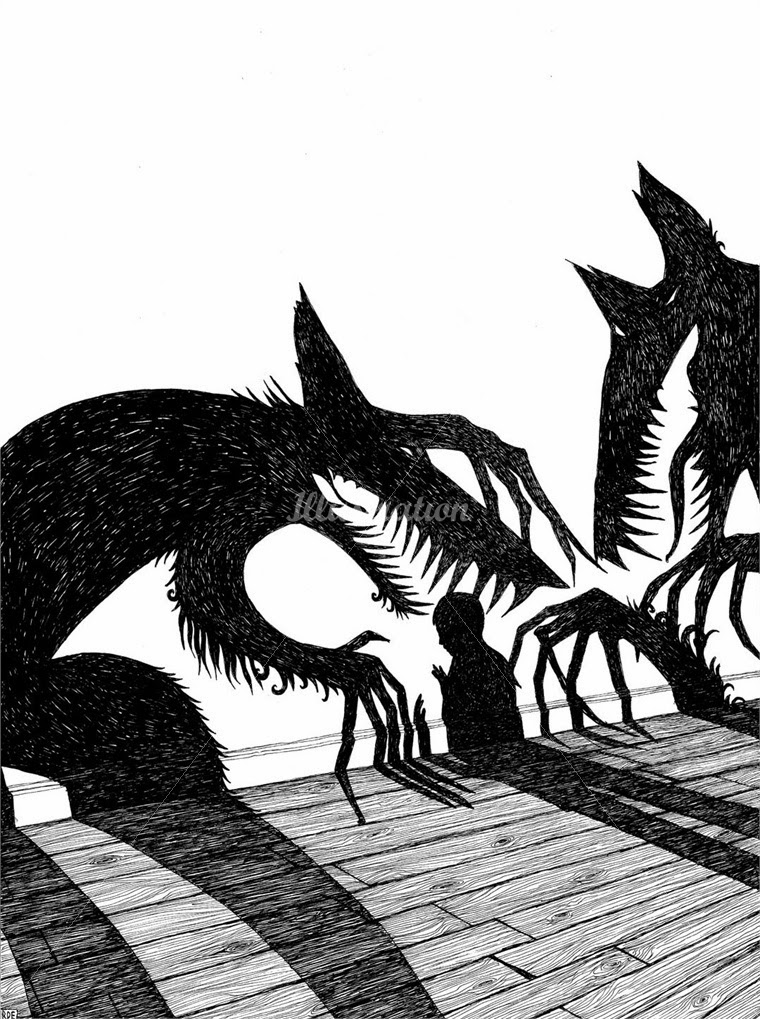Contacting professional illustrators has been so hard to do, as many of them dont reply and already have Q & A sections on their own websites, so I was delighted when one of my favorite artists, Rohan Eason replied to my questions.
He is a pen and ink illustrator, who creates black and white imagery. His work has been widely used in children's and adults book illustration. I absolutely love his style and it was a pleasure talking to him.
You can check out his work here at http://www.rohaneason.com
1) what inspired
you to first start drawing ?
I drew from a very early age, I always loved too, my mums an
artist, my uncle was an artist, and it felt like something I didn't have to try
to do.
2) Do you think it is
important for your drawings to have a connection to the subject your working
with ?
As a professional illustrator you don't have the luxury of a
connection with the subject matter or project ethos. Sometimes you win,
sometimes you face tedium and banality head on, and it's your job to squeeze
some life and character into it.
3) What are the
inspirations behind your work and working methods?
I was first inspired by Aubrey Beardsley, in my teens, I was
struck by the stark black and white line, and the beautifully balanced
compositions. I decided that I would aim to have the same quality of line that
he created, and really study the craft of drawing with ink.
4) Following on
from the last question, is research an integral part of your working process?
Research is always the no1, process. Nothing really begins without
reading the book, or gaining a back-story, visiting a location, or speaking to
the writer. I have a huge collection of books to trawl through and then of
course the Internet now offers a huge research library. I may sketch
immediately ideas of composition, but it's like putting a jigsaw together, and
each element must by researched and chosen.
 5) From
looking through your work, you use pen and ink in quite a few pieces. What is
it about that medium that you like ?
5) From
looking through your work, you use pen and ink in quite a few pieces. What is
it about that medium that you like ?
It's immediate and allows for no mistakes. It's a skill that I
can improve over my life time, it's important to me to create artworks, and not
just illustrations. I want the work to be a direct reflection of the
skills of my hand, there is something human in that, a connection which you
don't get with digital arts. Which is why I keep computer work to an absolute
minimum, only using for scanning and simple retouch.
6) How important do
you feel composition is to your work ?
Very important. I will try many compositions before settling
down on one. Sometime I will sketch a piece and then simply turn it , and re
sketch, changing the angle for the viewer and creating a more interesting
perspective. Composition is paramount.
7) How much freedom
do you have when creating your work ?
An
illustrator is always restricted by the brief, and it is the skill of the
illustrator to find freedoms in that. You must present everything required,
plus the special parts not thought of, or represented in the brief. It's not
your job to change the brief but reimagine it.
8) Throughout your
career what would you say is your biggest achievement?
Every book or project I complete is my best work to date, I'm
always striving to be better so self congratulation is fleeting. I always look
back and see the mistakes rather than the achievements, in that it's a journey
that I focus on. Rather than the goals of completion.


No comments:
Post a Comment